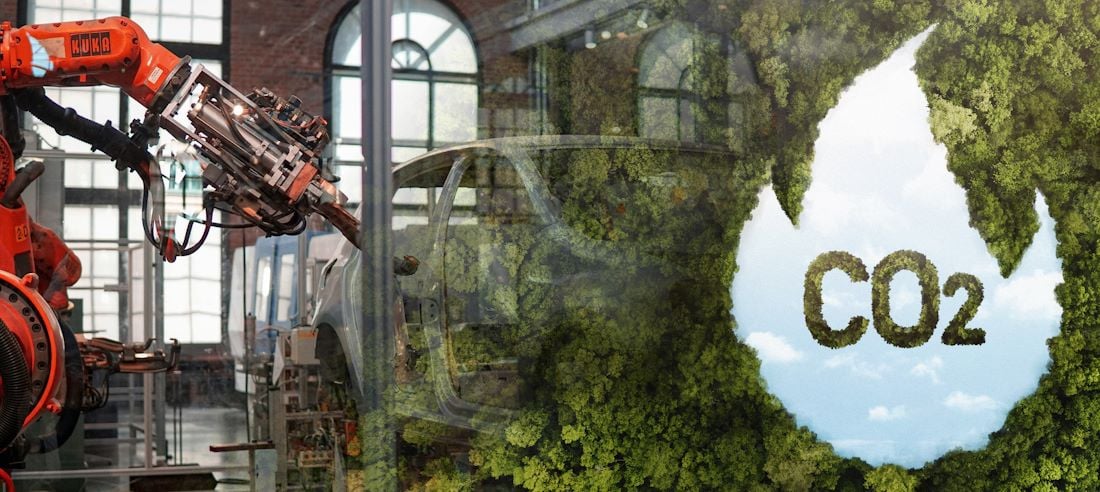We’ve all heard of the sharing economy. We’re all aware of the need for double decoupling. We all know that our resource consumption needs to drop drastically. But still, nothing is less disputed than our enjoyment of more money, be it a raise, a growing business or an increasing GDP. Isn’t that contradictory? Well, yes and no. In terms of business strategies, here’s how to get to both at the same time.
Yoon-Young Chun and Kun-Mo Lee are the two studious Korean researchers whose findings I would like to introduce in this article. They identified 105 business cases that were influenced early by life cycle thinking and second prospering. In this context, life cycle refers to awareness of product “life” beyond target consumer use. Raw material extraction, production, distribution, use phase and disposal are some of the stages every product goes through. Each of these “life stages” causes certain effects on the environment. Life cycle thinking aims to reduce these effects through consideration of the entirety of a product’s life. At each stage, there are possible improvements and, using a holistic life cycle approach, the result can be even more than simply the sum of the individual parts. All of the Korean businesses examined by the researchers made at least one life cycle improvement in the company’s product.
The study was published in the Canada-based Journal of Sustainable Development and it came to the same conclusion that sustainability practitioners around the world have supported for decades: it is not only mother nature that benefits from holistic thinking, but also daddy dollar. In other words, life-cycle-oriented businesses are better businesses in terms of business:
The results showed that the success of a sustainable business model depends on a mixture of pertinent generic business strategies from the life cycle perspective. A conventional business model that focused on a particular life cycle stage and strategy was not very successful. However, a new business model using generic business strategies (such as eco-design as well as product-service system (PSS)-oriented strategies geared at the relevant life cycle stage) produced significant environmental, economic, and social performance improvements.
The 105 cases analyzed by Chun and Lee included all kinds of companies. Some only conducted minor changes in their product systems, some went through extensive restructuring processes. There were companies that kept the structure of a conventional sales business, but retooled the design of their product on ecological criteria. Others reinvented themselves and their business model completely. In the latter category, we find several cases of manufacturers that entered the rental market. Baby products, plants, and even water purifiers can now be rented in Korea.
After considering the entire life-cycle of water purifiers, one former manufacturing company changed its profile to a full service contractor that now rents purifiers and provides maintenance service. The new concept reduces costs for both customer and environment. Although it comes with professional, energy-optimized installation and regular service, a 5-year lease of a refurbished purifier is cheaper than buying a new one. Generally, a service-based economic model provides a solid base for reduced resource use. This purifier case is no exception: the efficiency of the rented purifier, which has a longer use phase by far, exceeds that of the formerly owned ones. Energy efficiency is increased because of professional installation, advice on best use, and regular maintenance. Financial and environmental costs are reduced during the use phase, and not only for the customer. Better material efficiency, and higher reuse and recycling levels, are achieved during production by using new eco-design principles and by refurbishing existing purifier stock. This in contrast to using only new production, as the company did before its LCA-based relaunch. During the whole life cycle, the extended product life span and systematic dismantling further decrease costs. In the big picture, efficiency improvements on this scale can totally change a market: the water-purifier-manufacturer-turned-service-provider increased its sales six-fold in 13 years.
Another example from the survey shows that it doesn’t always need to be an entire restructuring of the company for life cycle thinking to be effective. A book retailer started to cooperate with convenience stores for smoother and more efficient collection of second hand books, turning convenience store clients into a part of the book supply chain and benefiting from more efficient use of the convenience store chain infrastructure. By marketing books twice or more, production emissions were reduced and the new, convenient book collection system increased the company’s growth rate by 60%.
These are just two examples of improved business practice. Improved in the true sense of the word, and holistically speaking. If, for the whole economy, double decoupling is to happen, then it will do so only with business people who practice life cycle thinking. It’s as simple as that.
Chun and Lee wouldn’t be scientists if they only collected actual case data. As part of their analysis, they also published an extensive catalog of LCA-based business strategies. I allow myself to cite all of them, slightly edited (original list see PDF p.8). Some are pretty obvious, but still, have you fully considered your company’s potential? For each of these steps? The authors listed one aspect that’s relevant to every life cycle stage. Perhaps fully exploring them all can sometimes become a question of outsourcing. Maybe there’s a specialist nearby that can handle one or more of the stages to reduce environmental and overall risk. But that’s a different question. Right now, find strategies for each life cycle stage and let there be fruitful innovation!
Design Stage
- substituting material with information or knowledge
- using fewer materials for a specific function
- reducing the environmental impact associated with the use of materials
Production Stage
- using clean/innovative technologies (e.g., solar energy)
- reducing energy consumption
- reducing waste
Packaging, Storage + Delivery
- Increase material and operational efficiency
Sales
- Ultimate Sales:
- encouraging customers to purchase eco-products/services (e.g. reutilized products)
- a) by remarketing and selling a refurbished product through retail, auction, or consignment sale
- b) by advertising and selling an eco-product (except reutilized products such as energy-saving products) with additional services or incentives
- mass customizing
- encouraging customers to purchase eco-products/services (e.g. reutilized products)
- Non-Ultimate Sales:
- – encouraging customers to abandon ownership
- a) by providing cost savings or tax benefits to customers
- b) by promising to offer additional services such as maintenance and ultimate disposal
- c) by enabling customers to avoid environmental risk
- – encouraging customers to abandon ownership
Installation
- giving information about the proper use of a product/service
Use and Maintenance
- increasing material-use intensity
- a) prolong the product’s lifetime via regular maintenance activities such as checks and repairs
- b) increasing demand per product/service for customers
- reducing the use of energy/materials
- a) by encouraging users (through information or feedback) to change their behavior without much effort
- b) by making users pay the electricity, gas, water and other bills for consumables during their use
Collection
- increasing the rate of self-collection with take-back service
- encouraging customers to directly deliver waste to the next stage
- giving customers incentives or cost savings without much effort
- solving customer inconvenience problems
Remanufacturing
- prolonging product lifetime by reassembling the product to meet the original specifications: refurbishing or using one more time
- prolonging product lifetime by adding or replacing functionality: upgrading or improving the performance
End-of-Life
- reutilizing waste directly
- a) reuse of parts in refurbishing
- b) recycling materials to reduce virgin feedstock use in production
- reutilizing waste indirectly : extracting and selling useable and recyclable parts and materials
Links
- Yoon-Young Chun, Kun-Mo Lee: Life Cycle-Based Generic Business Strategies for Sustainable Business Models, Journal of Sustainable Development, Vol 6, No 8 (2013)
- Discovering All Environmental Effects: How Life Cycle Assessment with LCA Software Works
- Making an LCA in 1 Hour – How to Get Going with Umberto
- Efficiency 2.0 – How to Reveal Hidden Savings Potential with Integrated Energy Management
- Cutting GHG Emissions of Industrial Parks by 35% through Corporate Collaboration
- 5-Fold Increase in Efficiency – Not Delusional at All
Article image edited by Moritz Bühner, based on original image CC BY 2.0 Sid Mosdell





